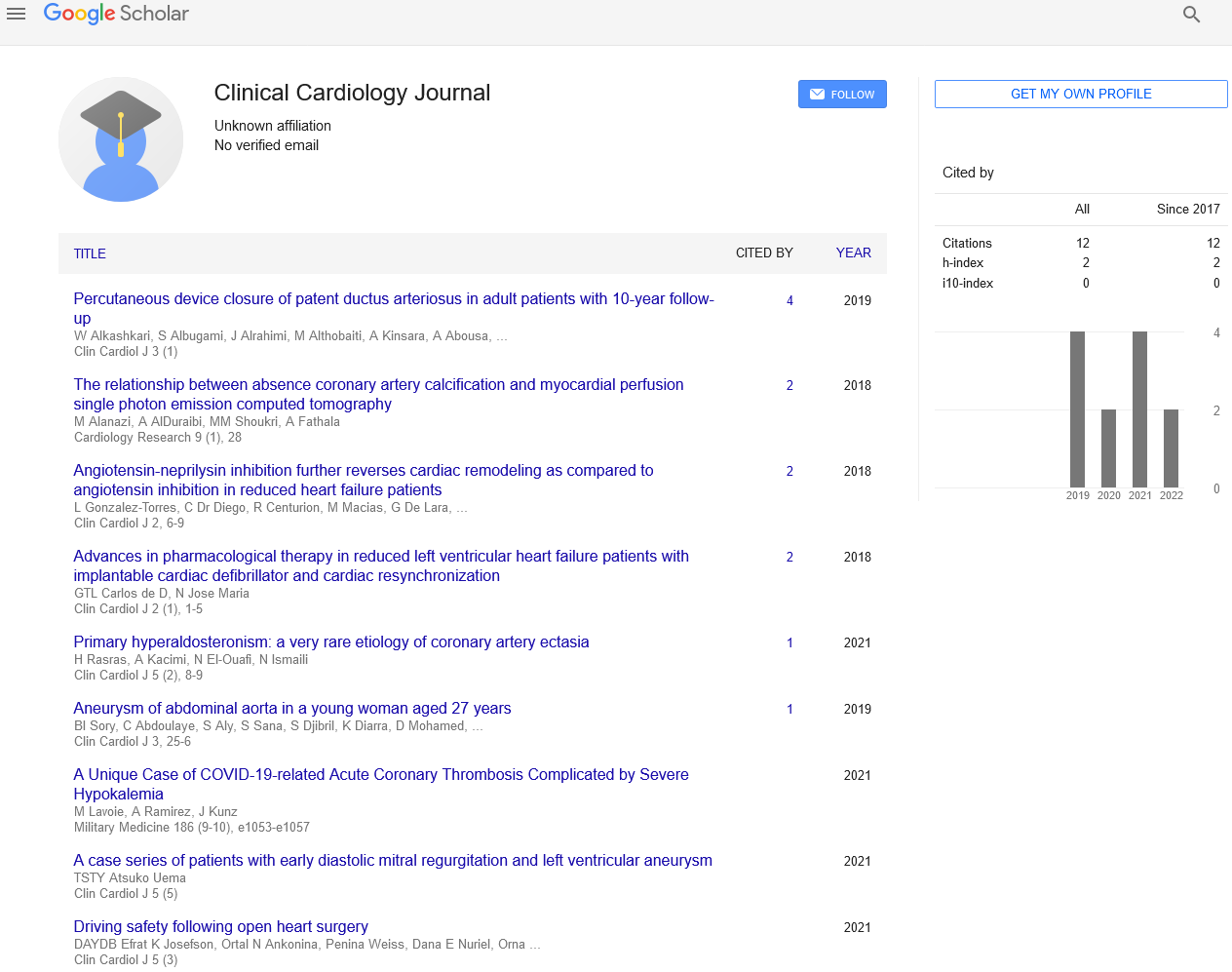Heart attack: A singular cause or a cumulative cause?
Received: 10-May-2021 Accepted Date: May 15, 2021; Published: 20-May-2021
Citation: Teja A. Heart attack: A singular cause or a cumulative cause?. Clin Cardiol J 2021;5(3):1.
This open-access article is distributed under the terms of the Creative Commons Attribution Non-Commercial License (CC BY-NC) (http://creativecommons.org/licenses/by-nc/4.0/), which permits reuse, distribution and reproduction of the article, provided that the original work is properly cited and the reuse is restricted to noncommercial purposes. For commercial reuse, contact reprints@pulsus.com
Editorial
The medical term for a heart attack is acute myocardial infarction. A heart attack is a potentially fatal disorder that happens when blood supply to the heart muscle is cut off suddenly, causing tissue damage. A blockage in one or more of the coronary arteries is typically the cause. Plaque, a material primarily composed of fat, cholesterol, and cellular waste, may cause a blockage. The heart is the most important organ of the cardiovascular system, which also involves various blood vessels. The arteries are some of the most essential vessels in the body. They provide oxygen-rich blood to the entire body and organs. The coronary arteries provide oxygen-rich blood to the heart muscle. As plaque builds up in these arteries, they become blocked or narrowed, restricting blood flow.
A blockage in the coronary arteries can be caused by a number of causes. Thus it can be stated that Heart attack may not be the effect of a single factor but a cumulative effect of several factors acting together also. Some common causes that are responsible for this deadly disease are bad cholesterol, Saturated fats, Trans fat, high level of cholesterol, triglyceride and trans fat other causes that are dependent on lifestyle are smoking, consumption of alcohol, regular intake of junk foods. When our blood pressure is high, we are more likely to have a heart attack. Depending on your age, normal blood pressure is less than 120/80 mm Hg (millimeters of mercury). The risk of having heart attacks rises as the population grows. High blood pressure destroys the arteries and accelerates plaque formation. When our blood pressure is high, we are more likely to have a heart attack. Depending on your age, normal blood pressure is less than 120/80 mm Hg (millimeters of mercury). The risk of having heart attacks rises as the population grows. High blood pressure destroys the arteries and accelerates plaque formation.
If our blood pressure is high, we are more likely to have a heart attack. Depending on your age, normal blood pressure is less than 120/80 mm Hg (millimeters of mercury). The risk of having heart attacks rises as the population grows. High blood pressure destroys the arteries and accelerates plaque formation. Acute myocardial infarction is a possibility for people who have elevated cholesterol levels in their blood. We may be able to lower our cholesterol by changing your diet or taking statins, which are cholesterol-lowering drugs. Diabetes is a disease in which blood sugar (glucose) levels increase. Blood arteries can be damaged by high blood sugar levels, which can lead to coronary artery disease. This is a serious health problem that in some people can lead to heart attacks.





